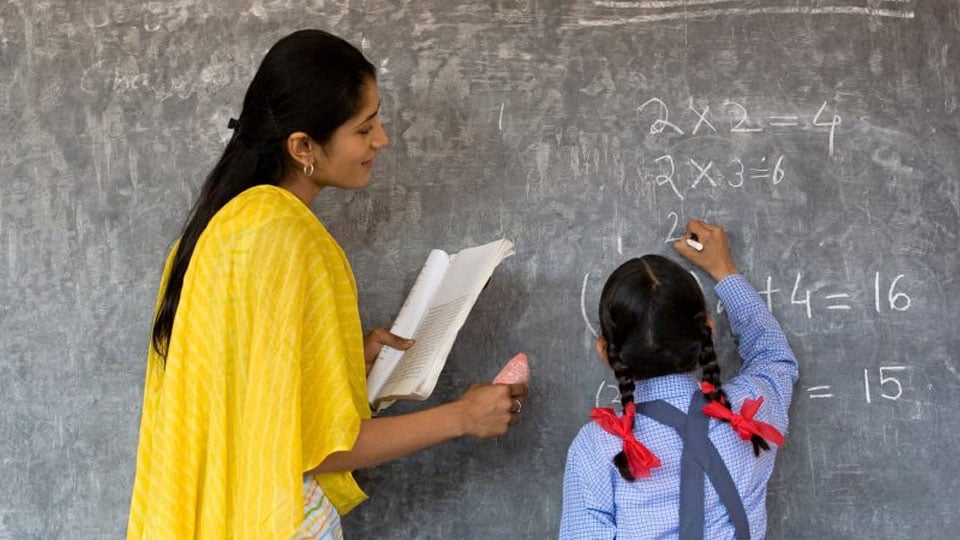The time-honoured outlook of respectfully remembering teachers, loaded with a deep sense of sentiment and raising one’s teacher to the rank of divinity (Gurudevobhava) seems to have faded to the point of vanishing in our times. The expression “Home is the child’s first school and mother the first teacher” (Maneye modala shale, thaayiye modala guru) too sounds strange to urbanites in today’s changed scenario of the typical mother, not necessarily a home-maker, in the nuclear family hard up to make time to attend to the prince or princess, being in a hurry to prepare herself for facing the chores of the day, including the task of rushing the offsprings to catch the school bus. The evening hours fold up no sooner than the final leg of activities begins, lost in the thought of facing the contingencies of the next day, a daily repeat. The days, weeks, months and years roll on witnessing the child’s progress into adulthood and enter the next phase of life. In the meanwhile, the school and the teacher faculty present a totally morphed feature prompting the accepted view that education is but a business, not education any longer.
The home and the school in times long past, reckoning by hindsight, moulded the child with personal care, marked by concern for its upright character and commitment. The icons in society of yesteryears emerged in an ambience of focussing on virtues and conduct.
Given the imperatives of preparing the child in the family to be abreast of the challenges of life in today’s society by not just being competent but staying competitive without relenting, the nuances of educating, read schooling, have tended to witness a thorough overhauling, which includes the part of training the teacher fraternity to function as teachers. One aspect of that overhauling, among many others, is the law prohibiting corporal punishment to the pupils for not obeying the teacher’s commands or for not being a good student. Unlike in our times, not only corporal (causing physical pain) punishment was considered as treatment but also the parents would not object in days gone by. The only option before the teacher is to pursue the task of teaching through persuasion.
The foregoing essay on the school scene of our times derives from a report in a section of the press last week saying that the President of Philippines has vetoed a draft law that would have made it illegal for parents and teachers to smack their children. Obviously, he is convinced about the message in the Kannada idiom Dandam dashagunam bhavet and the English idiom Spare the rod and spoil the child.








Recent Comments